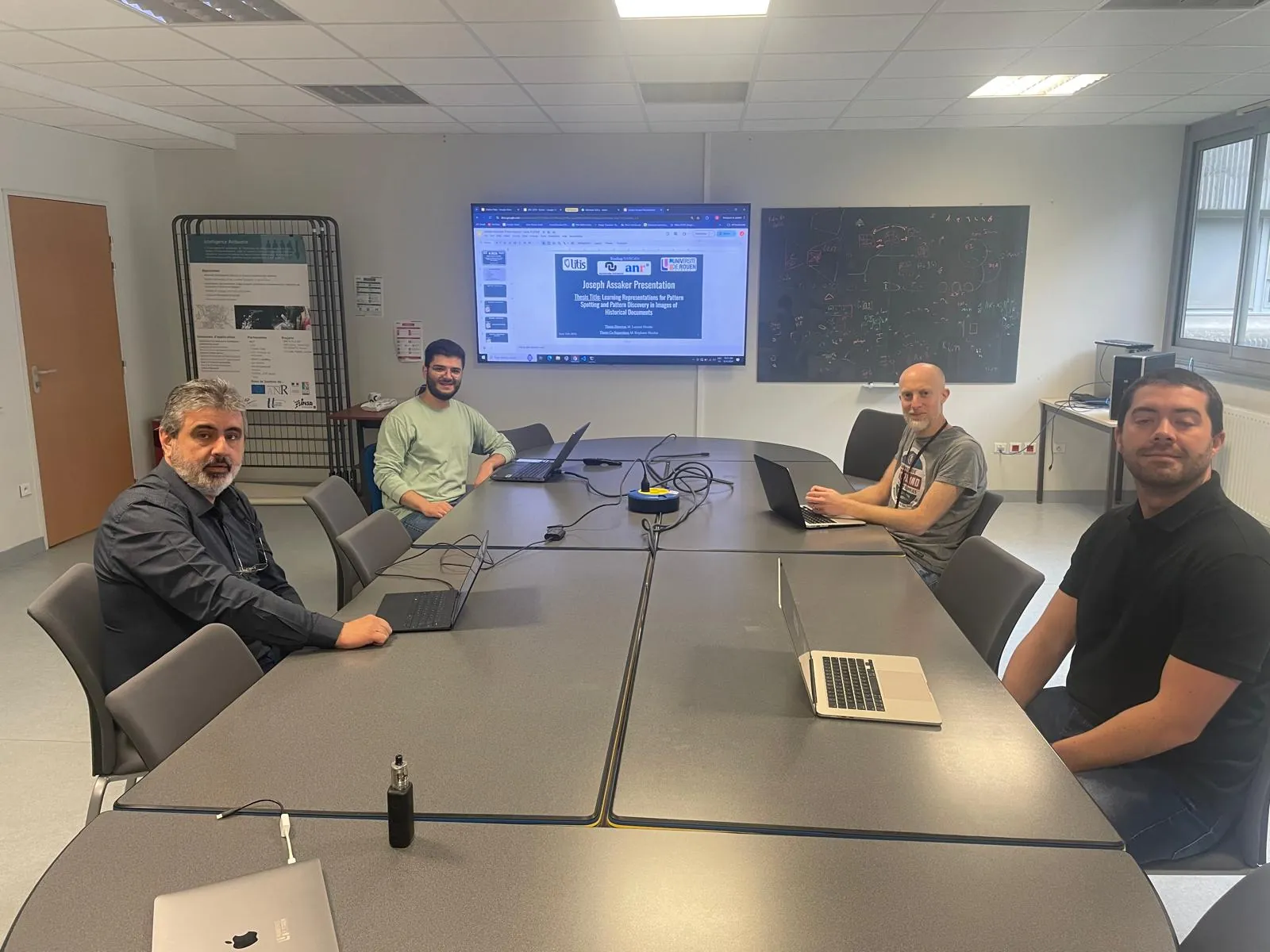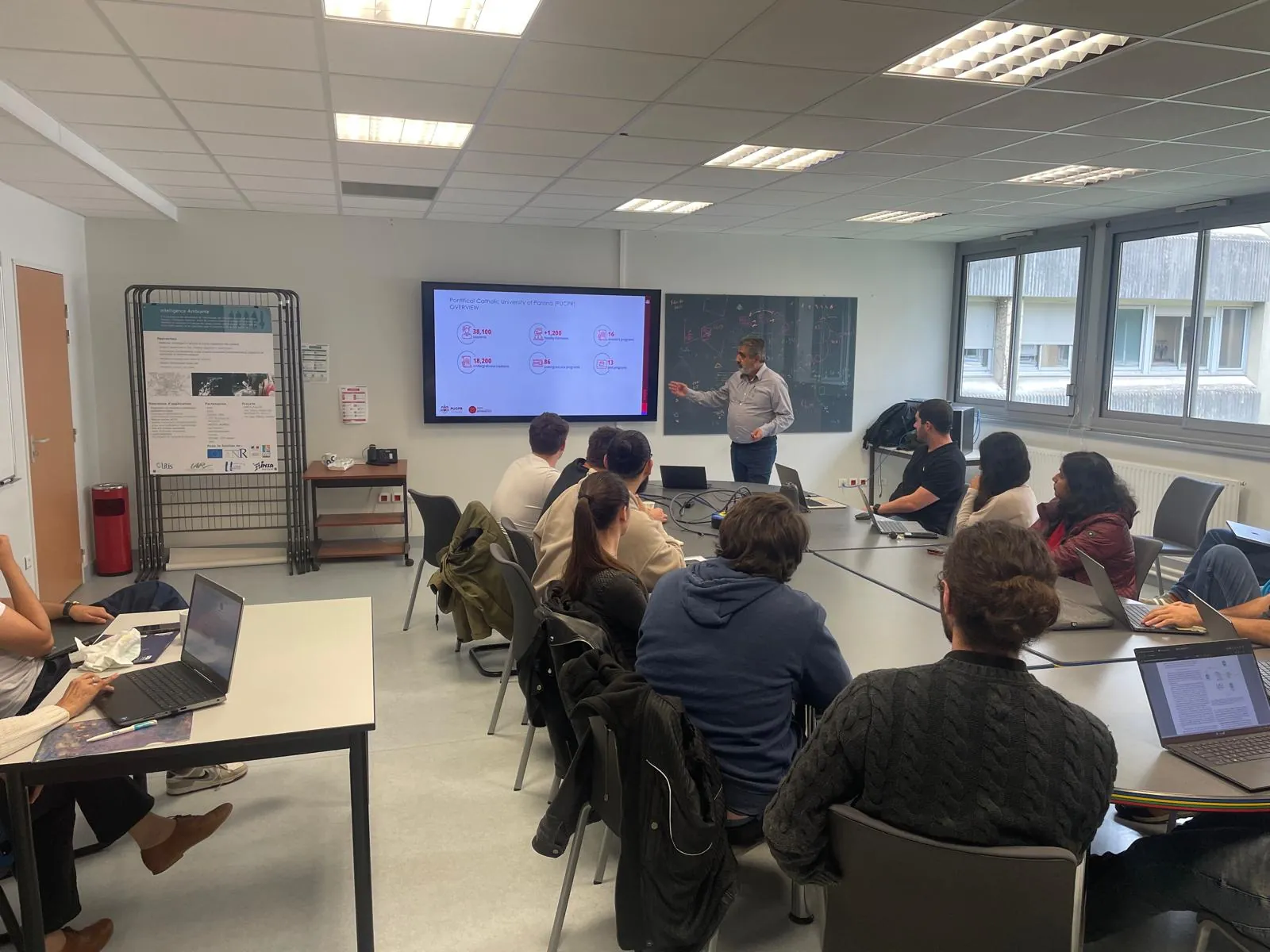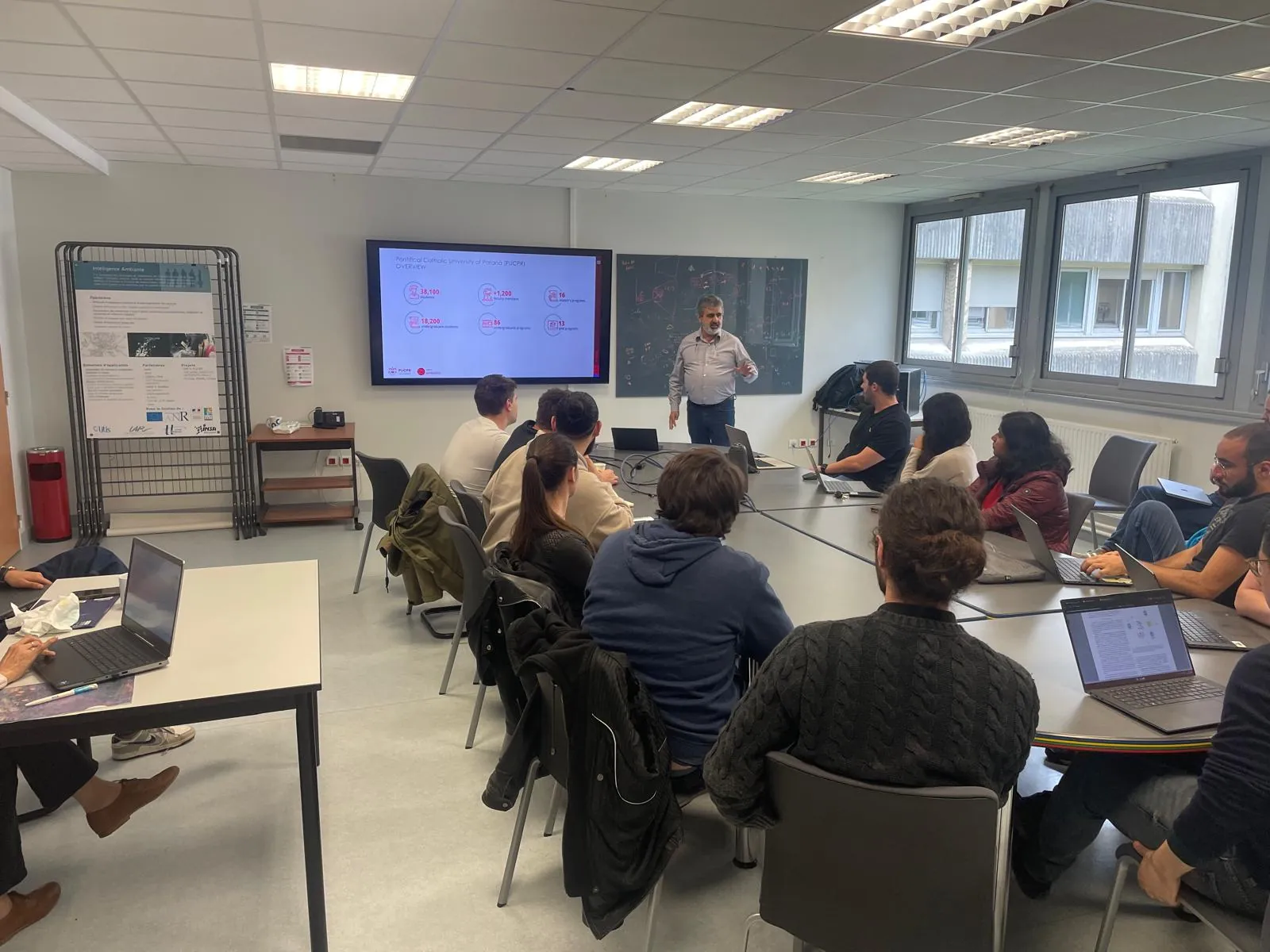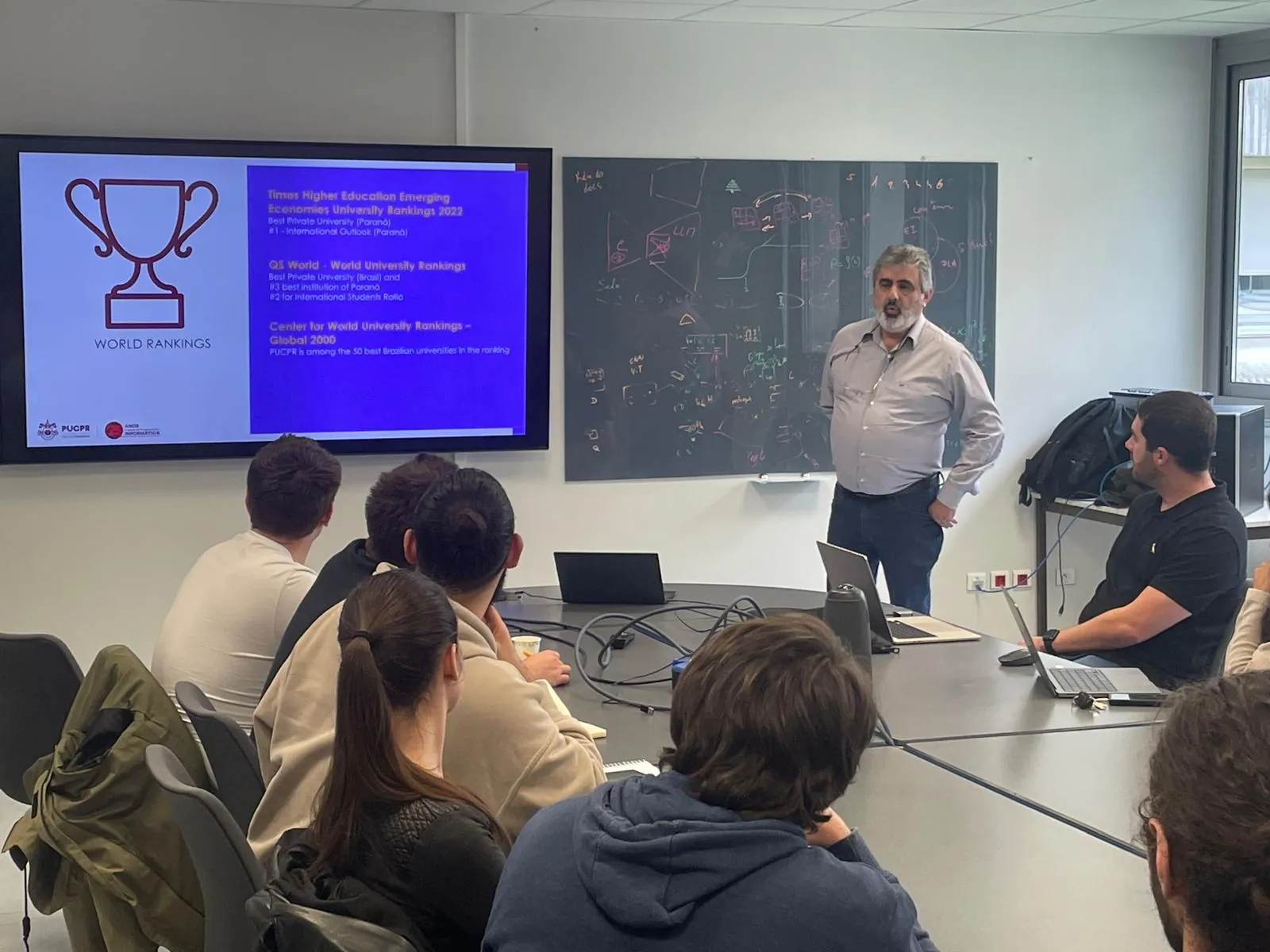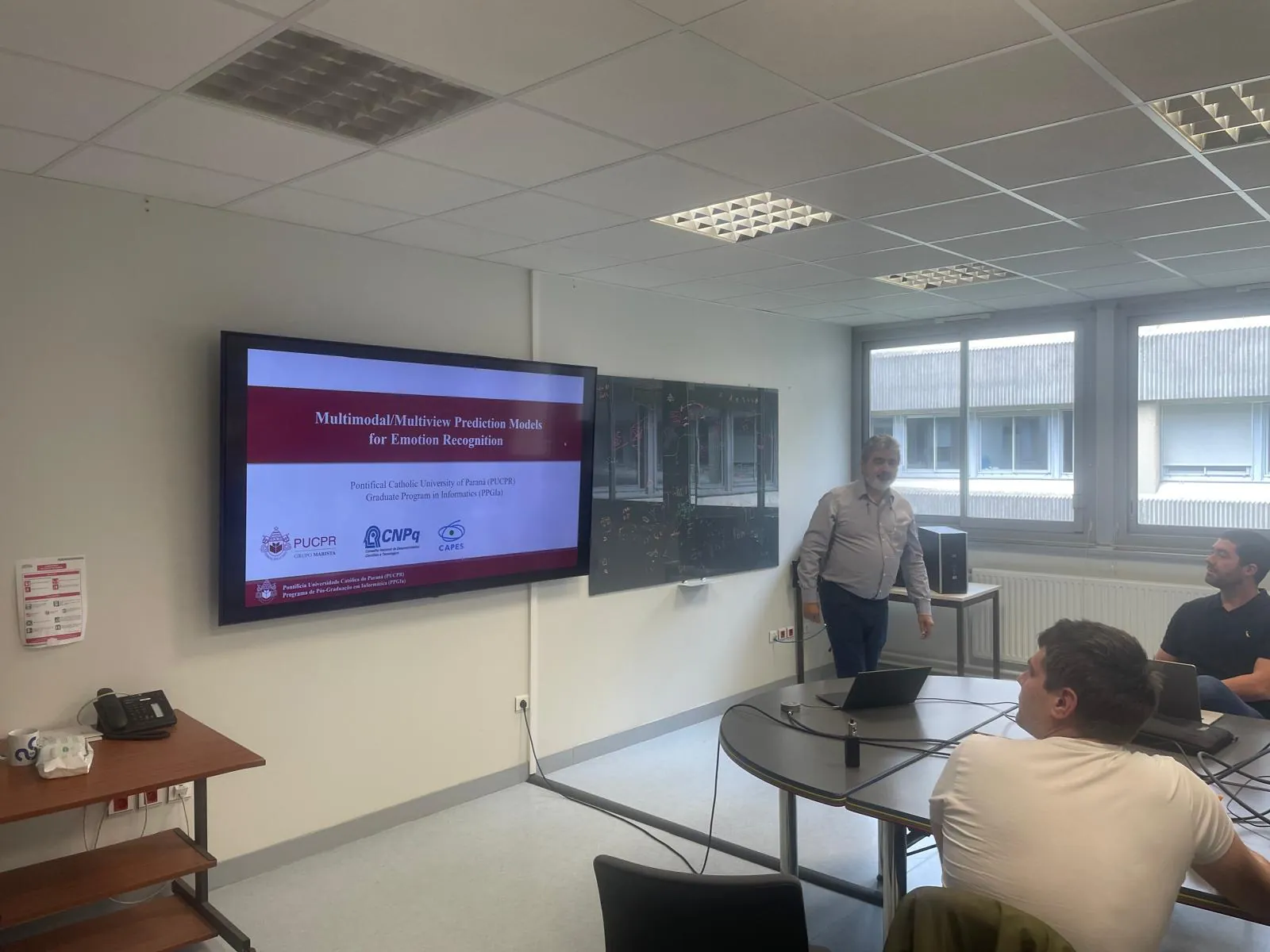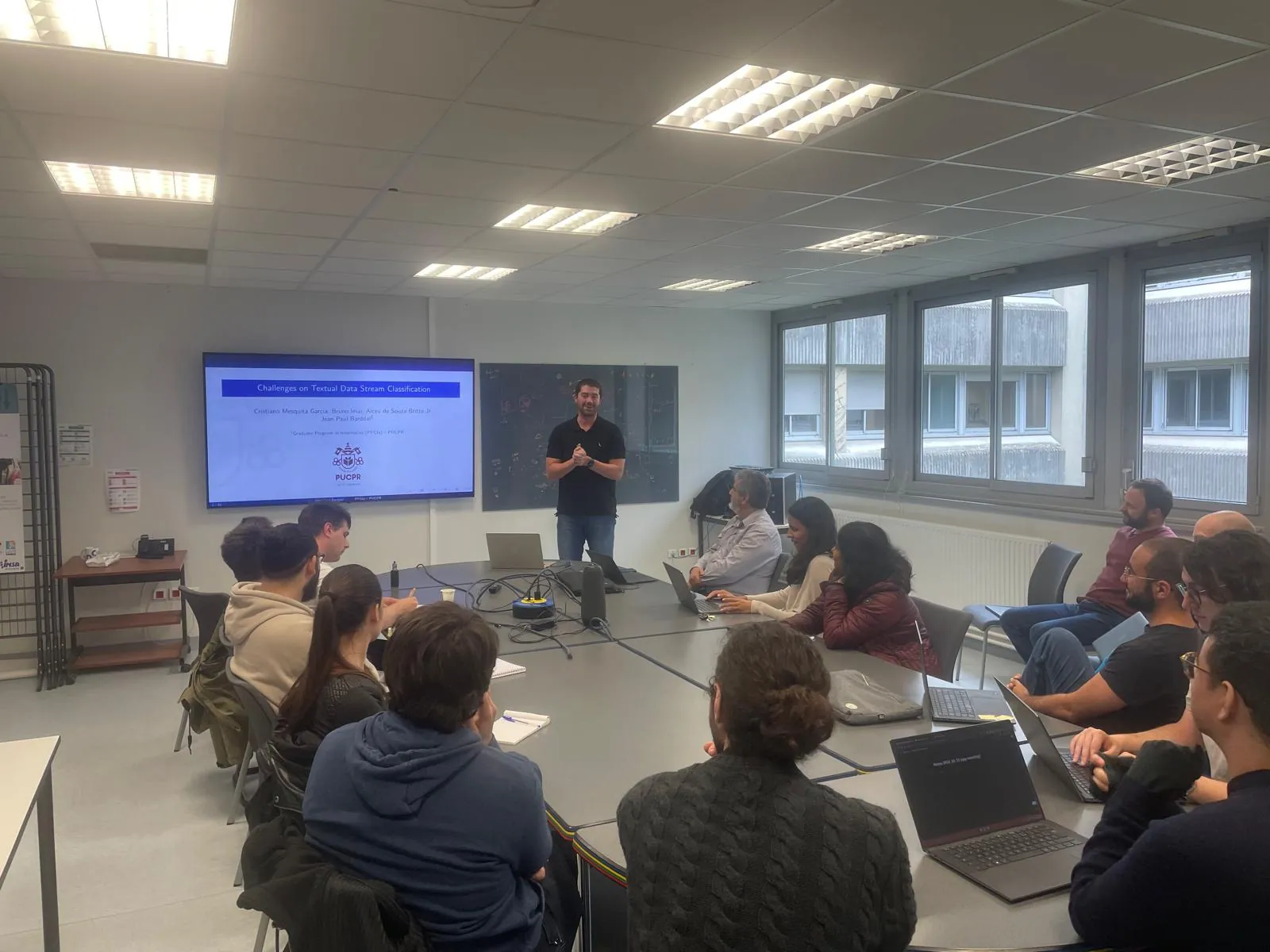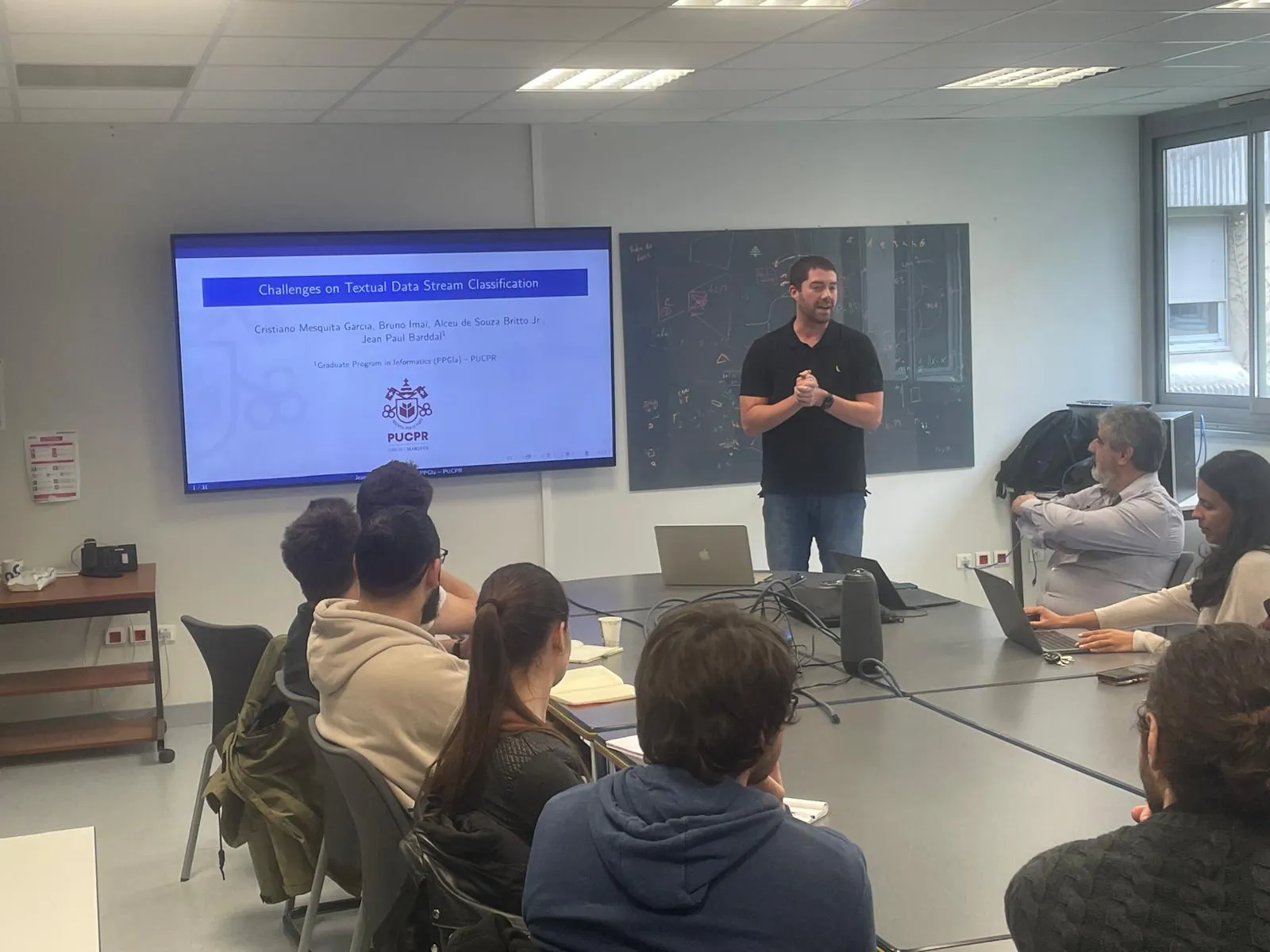- Place: Rouen - France
- Date: June 8-15th, 2024
- Attendees:
- Laurent Heutte (UR, France)
- Simon Bernard (UR, France)
- Fania Pacheco (UR, France)
- Stephane Nicola (UR, France)
- Alceu de Souza Britto Júnior (PUCPR, Brazil)
- Jean Paul Barddal (PUCPR, Brazil)
- PhD. Students (UR, France)
- Activities:
- Meeting: Prof. Laurent Heutte (UR), Prof. Alceu Britto (PUCPR), Prof. Jean Paul Barddal (PUCPR), Prof. Simon Bernard (UR) and Phd. Student Joseph Assaker (UR)
- Seminar: Prof. Alceu Britto (PUCPR). Title: Multimodal/Multiview Predictions Models for Emotion Recognition / Representation Ensemble Learning (REL) Algorithm - an evaluation of self-taught learning for Facial Emotion Recognition (FER). Abstract: This work introduces the representation ensemble learning algorithm, a novel approach for generating diverse unsupervised representations rooted in the principles of self-taught learning. The ensemble comprises convolutional autoencoders (CAEs) learned unsupervised, fostering diversity through a loss function designed to penalize similar CAEs. We evaluated support vector machines, bagging, and random forests for the final classification step. Additionally, we incorporate KnoraU, a well-established technique used to select only competent classifiers for a test sample dynamically. A robust experimental protocol considering the facial expression recognition problem shows that the proposed method based on self-taught learning is competitive compared to fine-tuned convolutional neural network (CNN) models. In terms of accuracy, the proposed method is up to 9.9 and 6.3 percentage points better than the CNN-based models fine-tuned for JAFFE and CK+ datasets, respectively.
- Seminar: Prof. Jean Paul Barddal (PUCPR). Title: Challenges on Textual Stream Classification. Abstract: Textual data stream classification is a machine learning task that combines the challenges from learning from textual and potentially ephemeral data sequences. In this talk, we will address the basic concepts that surround the area and discuss ongoing research on this topic. In particular, we will discuss semantic shift, data availability issues concerning the existence of concept drift, and the techniques we are developing to continuously address evolving classification and representation learning from such data sequences.
- Co-tutela: Preparing the cotutela document - PPGia (PUCPR, Brazil) / LITIS (UR, França) (Only the first 2 pages here)
- Meeting Prof. Jean Paul Barddal (Brazil) and Prof. Fania Pacheco (France), writing a new project to submitt to COFECUB/2024, Title: DEEDS: Deep Ensembles for Evolving Data Streams
- Go to Main Page ...
